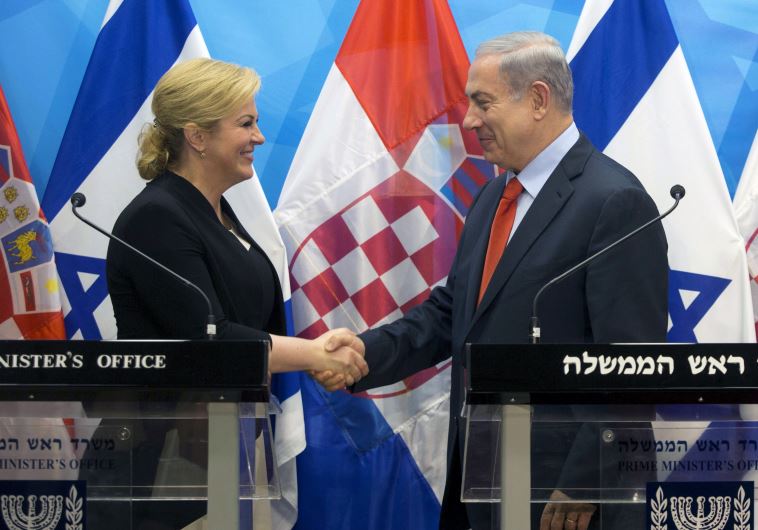Netanyahu: Nuclear deal makes Mideast war more likely, not less
Since the deal was announced eight days ago, Netanyahu has spoken out against it every single day – often more than once a day.
 Prime Minister Benjamin Netanyahu (R) and Croatian President Kolinda Grabar-KitarovicUpdated:
Prime Minister Benjamin Netanyahu (R) and Croatian President Kolinda Grabar-KitarovicUpdated: